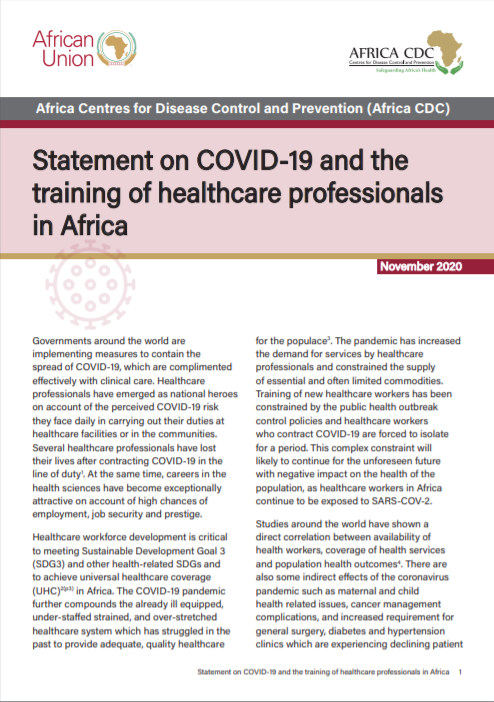Governments around the world are implementing measures to contain the spread of COVID-19, which are complimented effectively with clinical care. Healthcare professionals have emerged as national heroes on account of the perceived COVID-19 risk they face daily in carrying out their duties at healthcare facilities or in the communities.
Several healthcare professionals have lost their lives after contracting COVID-19 in the line of duty. At the same time, careers in the health sciences have become exceptionally attractive on account of high chances of employment, job security and prestige.
Healthcare workforce development is critical to meeting Sustainable Development Goal 3 (SDG3) and other health-related SDGs and to achieve universal healthcare coverage (UHC)2(p3) in Africa. The COVID-19 pandemic further compounds the already ill equipped, under-staffed strained, and over-stretched healthcare system which has struggled in the past to provide adequate, quality healthcare for the populace3. The pandemic has increased the demand for services by healthcare professionals and constrained the supply of essential and often limited commodities. Training of new healthcare workers has been constrained by the public health outbreak control policies and healthcare workers who contract COVID-19 are forced to isolate for a period. This complex constraint will likely to continue for the unforeseen future with negative impact on the health of the population, as healthcare workers in Africa continue to be exposed to SARS-COV-2.
